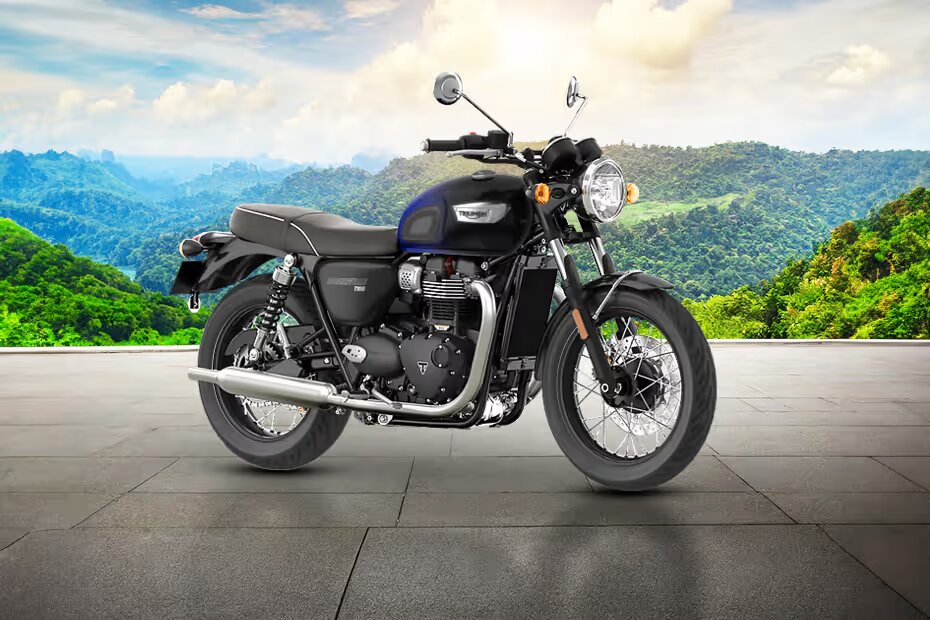
Triumph Bullet Photo: Capturing the Iconic Motorcycle in Its Best Light
Triumph motorcycles have long been symbols of freedom, power, and timeless design. For photography enthusiasts, capturing the spirit of the Triumph Bullet motorcycle requires skill, artistry, and an understanding of what makes this bike special. This article delves into the techniques and tools to make your Triumph Bullet photo stand out.
Essential Equipment for Triumph Bullet Photography
Selecting the right gear is crucial. A DSLR or mirrorless camera with a fast lens—such as a 50mm or 85mm prime lens—can capture sharp details while blurring the background. Wide-angle lenses (24-35mm) are perfect for highlighting both the motorcycle and the surrounding landscape. Choosing the right equipment can significantly enhance your motorcycle photography experience.
Mastering the Basics of Motorcycle Photography
Motorcycle photography requires understanding exposure, lighting, and positioning. For Triumph Bullet photography:
- Shutter Speed: Use faster shutter speeds to freeze action and prevent blurring.
- ISO Sensitivity: Adjust ISO for lighting conditions—lower ISO for bright days and higher ISO for low-light settings.
- Lighting: Natural light is often best, but diffusers can soften harsh midday light.
Understanding these fundamentals will help you capture crisp, vibrant photos.
Choosing the Ideal Background for Motorcycle Photos
A suitable background can enhance the Triumph Bullet’s design. Rustic backdrops, open roads, or urban scenes can all work well. Look for locations that contrast the bike’s colors, adding depth without detracting from the main subject.
Lighting Techniques for Triumph Bullet Photos
Lighting makes or breaks a photograph. For the Triumph Bullet, aim for:
- Golden Hour Shots: Warm tones during sunrise or sunset emphasize the bike’s details.
- Blue Hour Shots: Evening shots can create a cool, mysterious ambiance.
- Artificial Lighting: Use reflectors or flash diffusers for even lighting on specific details.
Good lighting techniques can give your images a professional quality.
Composition Tips for Capturing the Triumph Bullet
Composition plays a big role in how your photos are perceived. Utilize techniques like:
- Rule of Thirds: Position the motorcycle off-center for a balanced look.
- Leading Lines: Roads or paths that direct the viewer’s gaze toward the bike.
- Framing: Use surrounding elements, such as trees or buildings, to frame the triumph bullet photo
These techniques ensure your photos remain visually appealing and engaging.
Capturing Motion with the Triumph Bullet
For dynamic shots, try techniques that capture speed and action, such as:
- Panning: Move the camera along with the motorcycle, using a slower shutter speed to blur the background while keeping the bike sharp.
- Fast Shutter Speed: Freeze motion for crisp shots of the bike in action.
Motion photography requires practice, but the results can be striking.
Editing and Enhancing Triumph Bullet Photos
Editing brings your photos to life. Software like Adobe Lightroom or Photoshop can enhance color, contrast, and sharpness. Key tips include:
- Adjust Brightness and Contrast: Ensure the bike’s details stand out.
- Enhance Colors: Make sure the Triumph Bullet’s colors are vibrant.
- Sharpen Details: Highlight intricate elements like the engine or logos.
Subtle edits can elevate your images without making them look artificial.
Using Filters and Effects for Triumph Bullet Photography
Filters can add a creative flair. Popular options include:
- Vintage Filters: Enhance the Triumph Bullet’s classic appeal.
- Sepia and Black and White: These create a timeless, moody look.
- High Contrast Filters: Boosts the details and depth of the motorcycle.
Each filter has a unique effect on the final image.
Creating Dramatic Shots with Black and White Photography
Black and white photography emphasizes shape and form. When shooting the Triumph Bullet in monochrome, focus on:
- High Contrast Settings: Make shadows more pronounced.
- Textures and Patterns: Highlight the bike’s mechanical features.
Black and white shots can transform the Triumph Bullet into an iconic masterpiece.
Understanding Angles and Perspectives in Motorcycle Photography
Angles alter the perception of your shots. Experiment with:
- Low Angles: Make the motorcycle appear powerful and dominant.
- High Angles: Provide a full view of the bike, ideal for detail shots.
- Close-Ups and Wide Shots: Capture specific elements or the whole motorcycle.
Experimenting with angles can lead to unique, captivating photos.
Inspiration from Famous Motorcycle Photographers
Studying renowned photographers can provide insights into style and technique. Explore works by photographers specializing in motorcycles to understand what makes a photo memorable.
Building a Portfolio for Triumph Bullet Photography
A strong portfolio showcases variety, quality, and attention to detail. Include:
- Action Shots: Show the Triumph Bullet in motion.
- Detail Shots: Highlight intricate parts of the bike.
- Diverse Backgrounds: Demonstrate versatility in settings.
A well-rounded portfolio can attract potential clients or social media followers.
FAQs about Triumph Bullet Photography
- What’s the best time of day to photograph a Triumph Bullet?
Golden hour, around sunrise or sunset, offers warm lighting that enhances the bike’s details. - Which lens is ideal for motorcycle photography?
A 50mm or 85mm lens provides sharp, detailed shots, while a wide-angle lens captures the surrounding environment. - How do I capture motion in Triumph Bullet photos?
Use panning techniques or a fast shutter speed to freeze action. - What should I focus on in detail shots?
Highlight elements like the engine, handlebars, and exhaust pipes to showcase the bike’s craftsmanship. - Is editing necessary for motorcycle photography?
Yes, subtle edits enhance color, contrast, and sharpness, making the photos more professional. - Can black and white photography work for Triumph Bullet photos?
Absolutely. Black and white photography adds a dramatic, timeless appeal to the images.
